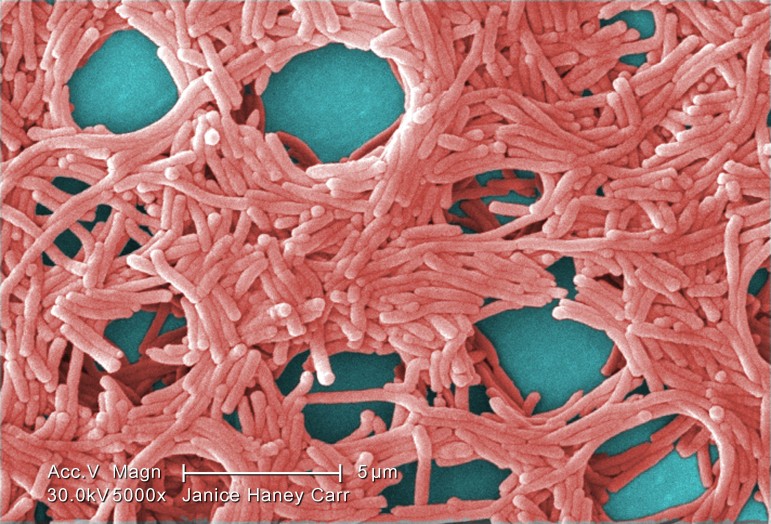
Margaret Williams, PhD; Claressa Lucas, PhD;Tatiana Travis, BS
Legionella pneumophila bacteria
It’s been 25 days since the South Bronx Legionnaire’s outbreak first surfaced—a period of time in which, typically, some 3,600 New Yorkers die of various causes. But the unusual nature of Legionnaire’s Disease and its insidious reputation somehow make the seven deaths to date more alarming.
So City Hall is trying to tamp down unnecessary fear by noting in its most recent interagency update that “New York City’s drinking water supply and other water features, like fountains, shower heads and pools, are safe throughout New York City and are unaffected by legionella” and that “Water towers are unaffected by legionella,” an important point since the outbreak involves similar-sounding “cooling towers.” Water towers store drinking water; cooling towers are used to release heat from water within an air-conditioning system.
The de Blasio administration also insists that “Home air conditioner units are unaffected and walking into air conditioned environments is safe, as well.”
One of the reasons why Legionnaire’s is such an unfamiliar enemy is because it requires a very specific and unusual set of conditions to threaten people. According to the Mayo Clinic, Legionnaire’s occurs naturally in soil and water but rarely in ways that post a human health threat. “Indoors, though, legionella bacteria can multiply in all kinds of water systems — hot tubs, air conditioners and mist sprayers in grocery store produce departments,” the Clinic writes.
But even then, a lot needs to go wrong for Legionnaire’s to appear: you need the bacteria itself, water that doesn’t move much and is pretty hot but not too hot (the ideal temperature for Legionella growth is between 95 and 115 degrees Fahrenheit, according to OSHA), and the presence of sediments and microorganisms that feed the bacteria.
The set of conditions necessary for an outbreak, however, also mean that when Legionnaire’s does strike it is likely to threaten a lot of people. “Although it’s possible to contract Legionnaires’ disease from home plumbing systems,” the Mayor Clinic notes, “most outbreaks have occurred in large buildings, perhaps because complex systems allow the bacteria to grow and spread more easily.”








